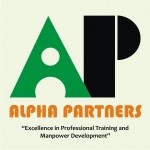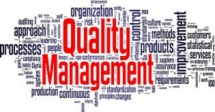|
|
Stores and Inventory Administration in Aviation Sector
NGN 375,000 |
Venue: 200, Murtala Muhammed Way (2nd & 3rd Floors), Adekunle Bus Stop, Yaba, Lagos
Objectives:
At the end of this training, participants should be able to:
- Understand the importance of effective stores and inventory administration in the aviation sector
- Familiarize with aviation-specific inventory management principles
- Gain knowledge of aviation inventory control systems
- Learn inventory planning and forecasting techniques
- Understand aviation-specific inventory valuation methods
- Master aviation stores and warehouse management
- Explore aviation spare parts management
- Develop skills in inventory record keeping and documentation
- Gain insights into aviation inventory performance metrics and KPIs
- Enhance problem-solving and decision-making abilities in inventory management
Content:
Introduction to Aviation Stores and Inventory Administration
- Importance of effective stores and inventory management in aviation
- Overview of the aviation sector and its specific inventory management challenges
- Regulatory requirements and standards related to aviation stores and inventory administration
Aviation Inventory Control Systems
- Types of inventory control systems used in aviation
- Automated Inventory Management Systems (AIMS) and their functionalities
- Integration of inventory control systems with other aviation management systems
Aviation Inventory Planning and Forecasting
- Demand forecasting techniques in the aviation sector
- Determining optimal inventory levels and safety stock
- Inventory planning strategies for aviation organizations
Aviation Inventory Valuation Methods
- Different methods of valuing aviation inventory
- Replacement cost, net realizable value, and lower of cost or market approaches
- Applicability of valuation methods in the aviation industry
Aviation Stores and Warehouse Management
- Receiving, inspection, and acceptance procedures for aviation inventory
- Proper storage and stock rotation techniques
- Picking, packing, and shipping processes in aviation stores and warehouses
Aviation Spare Parts Management
- Lifecycle management of aviation spare parts
- Procurement strategies for spare parts
- Shelf-life control, storage conditions, tracking, and disposal of spare parts
Inventory Record Keeping and Documentation
- Importance of accurate record keeping in aviation inventory management
- Stock reconciliation processes and documentation
- Documentation for regulatory compliance and audits
Aviation Inventory Performance Metrics and KPIs
- Key performance indicators (KPIs) for measuring inventory performance in aviation
- Stock turnover ratio, fill rate, obsolescence rate, and other relevant metrics
- Interpretation and analysis of inventory performance data
Problem-Solving and Decision-Making in Inventory Management
- Identifying and addressing common inventory-related issues in aviation
- Problem-solving techniques for stock discrepancies, obsolescence, surplus, and shortage
- Decision-making processes for optimizing inventory management in aviation
Technology in Aviation Inventory Management
- Role of technology in improving stores and inventory administration
- RFID, barcoding, and inventory management software applications in aviation
- Integration of technology with existing inventory control systems
Regulatory Compliance and Best Practices in Aviation Inventory Administration
- Latest regulatory requirements and standards for aviation stores and inventory management
- Industry best practices for safety, security, and quality management in inventory administration
- Continuous improvement and staying updated with industry trends
Training Methodology:
he training methodology combines lectures, discussions, group exercises and illustrations. Participants will gain both theoretical and practical knowledge of the topics. The emphasis is on the practical application of the topics and as a result participant will go back to the workplace with both the ability and the confidence to apply the techniques learned to their duties.
Course Booking
Please use the “book now” or “inquire” buttons on this page to either book your space or make further enquiries.
| 200, Murtala Muhammed Way (2nd & 3rd Floors), Adekunle Bus Stop, Yaba, Lagos | May 26 - 28 May, 2025 |
| NGN 375,000.00 | (The Workshop fee is 375000 (Three Hundred and Seventy Five Thousand Naira) only per participant to cover workshop literature and materials, executive bag, tea/coffee, lunch, photograph and certificate.) |
Chris Onwuasigwe, FCA, FCTI, FIMC – 08033045484 08033045484
Related Courses
 Database Design, Tools and Techniques with Microsoft Access
Database Design, Tools and Techniques with Microsoft Access
5 days, 19 - 23 May, 2025
Alpha Partners
Currency Converter







.png)